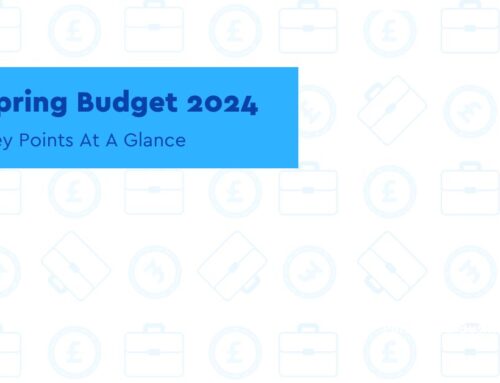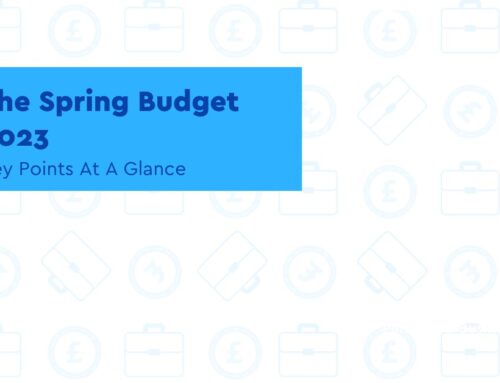News – Business Investment
Government backs innovative businesses with new £150 million loan scheme
Key Points
- Government launches new series of loans worth £150 million to support innovative SMEs and level up the UK
- Launch of the loans programme will broaden the financial support available to businesses, ensuring they can access funding at all stages of innovation
Some of the UK’s most innovative businesses are set to benefit from a new series of loan competitions offering up to £150 million to support their research and development projects, the government recently announced.
The loans will support innovations deemed to have the strongest potential to support future economic growth and tackle social challenges, across fields such as net zero, health and wellbeing, and next-generation digital technologies, as well as the ‘7 Technology Families’ of the Innovation Strategy – advanced materials and manufacturing; engineering biology; electronics; sensors; photonics and quantum; and robotics and smart machines.
The funding, to be delivered through Innovate UK, will be available to SMEs over the next 3 years and will prioritise projects focused on the most important areas of the future economy as set out in the Innovate UK Plan for Action. Businesses can apply for funding through the Innovation Funding Service.
The loans are part of the government’s plan to build on the measures outlined last year in its Innovation Strategy, enabling UK innovators to access the right finance at the right time in order to grow, building on our world-leading research capability and helping to secure the UK’s position as a science superpower.
Projects supported via the successful loan programme to date have included portable freezers able to safely deliver vaccines to care homes and surgeries, a platform designed to protect hospitals and healthcare centres from cyber-attacks during the pandemic, and patented hospital screens preventing the transmission of pathogens and viruses.
Science Minister George Freeman said:
“As the success of our extraordinary vaccine development and roll-out made clear, the UK is home to some of the most brilliant and innovative minds in the world.
“Supporting our talented innovators, not only to develop their ideas but to see these ideas through to commercialisation, will be essential to growing an economy built on the technologies of the future, and securing the UK’s status as a true Innovation Nation.
“So, I am thrilled that after an extremely successful pilot programme, Innovate UK are launching this substantial new series of loans to support SMEs working across the country on the most innovative projects for the future economy, entrenching our position as a science superpower.”
Businesses with innovative late-stage projects can apply for a loan between £100,000 and £2 million, with flexible repayment terms to help secure their future growth and commercial success. The new full-scale programme will start with monthly competition rounds, for which applicants will need to demonstrate evidence of a high quality proposed innovation project, suitability to take on a loan, and inability to access finance for their project from commercial finance providers.
This government-backed finance builds on the success of an extended pilot programme that has been delivered by Innovate UK Loans Limited since 2017, and the programme of innovation continuity loans delivered as part of Innovate UK’s coronavirus support package.
Innovation loans are designed to support suitable micro, small and medium sized-businesses (SMEs) in carrying out late-stage research and development projects, with a clear route to commercial success to drive productivity and growth across the UK.
Indro Mukerjee, CEO of Innovate UK, said:
“Innovation loans are an important part of the investment support that Innovate UK offers to help UK businesses achieve their growth ambitions. We have tested this new form of support rigorously and I am pleased that we can now offer £150 million over the next 3 years through innovation loans as part of our commitment to support innovative businesses to grow rapidly and achieve scale.
“The innovation loans scheme is just one of the services to growing and scaling businesses across the UK. Our wrap-around support now includes greater access to Innovate UK EDGE, a business advisory service; and Innovate UK KTN, more opportunity for businesses to connect with potential academic and business partners to help scale in the UK and abroad.
“Allied with this is our continued work with the British Business Bank and private finance to provide further backing for UK innovators.”
The decision to transition from pilot to full-scale loans programme was taken following an independent evaluation of the scheme’s success, which found that the pilot had been extremely effective, and that the innovation loans programme is viewed as a key finance product within the market, supplying essential funding that would not have been available elsewhere.
The innovation loans programmes to date have committed £163 million to around 200 businesses in all parts of the UK, enabling new product development and commercialisation activities, supporting investment in research jobs and delivering growing levels of sales. Over a third of businesses in the portfolio have accessed additional private investment, leveraging new capital of over £110 million, with an average raise of £1.8 million.
This article was derived from gov.uk: https://www.gov.uk/government/news/government-backs-innovative-businesses-with-new-150-million-loan-scheme
News – Capital Allowances
Chancellor announces review of capital allowances regime
Key Points
- The 130% super deduction introduced at Spring Budget 2021 is due to expire on March 31, 2023
- Various potential options to enhance the capital allowances regime from April 2023 are being considered
In his Spring Statement, the Chancellor Rishi Sunak announced a review of the capital allowances system in advance of the Autumn Budget. Several potential options for reform are being considered and will be discussed with businesses and other interested parties.
The government is keen to encourage the private sector to invest in capital assets to enhance productivity growth over the coming few years.
The 130% super deduction introduced at Spring Budget 2021 is due to expire on 31 March 2023. Various potential options to enhance the capital allowances regime from April 2023 are being considered. The government notes that despite the UK’s relatively competitive headline corporation tax rate, incentives for capital investment are less generous than the OECD average and is seeking to address this.
It is clear from the Spring Statement document that the government will be looking to strike an appropriate balance between simplicity, generosity and impact on investment. Priority will be given to measures that expect to have the biggest impact in driving growth. A combination of these may be adopted.
Some of the potential options being considered in respect of expenditure on plant and machinery are summarised below, from least generous to most generous.
- A permanent increase in the default level of the annual investment allowance. The existing £1m annual amount is due to revert back to the default of £200,000 from April 2023. This permanent amount could be increased to £500,000, for example. This was the enhanced rate set between April 2014 and 31 December 2015.
- An increase in the writing down allowances (WDAs) for the main rate and special rate pools from 18% and 6% to 20% and 8% respectively. This would essentially be winding the clock back as the main rate pool WDA was 20% before April 2012 and the special rate pool WDA was 8% before April 2019.
- A first-year allowance regime where businesses are able to claim a large up-front WDA and then write off the remaining amount through capital allowances pools over time. The Spring Statement suggests a 40% upfront allowance applicable to main rate pool assets and 13% for special rate pool assets. This is similar to the 40% first year allowances that were available to small and medium-sized enterprises until April 2008.
- An additional upfront allowance of 20% on the cost of qualifying expenditure, with a further 100% relief given over time through writing down allowances. This would be a brand-new initiative, although there are other forms of expenditure, such as on clearing contaminated land, that benefit from relief on excess of 100% of the value of qualifying expenditure.
- A full expense regime, such that 100% upfront relief would be given for all forms of qualifying capital expenditure. This should mean that all existing capital allowances regimes relating to plant and machinery could be repealed. No other G7 member has implemented this on a permanent basis.
This article was derived from ICAEW: https://www.icaew.com/insights/tax-news/2022/Mar-2022/Spring-Statement-Chancellor-announces-review-of-capital-allowances-regime
News – Finance
Key changes across finance and business from April
Key Points
- The employment allowance for 2022/23 will be £5000
- Employers should be aware that all minimum wage rates increase on April 1
April is a month of financial change across rates and thresholds, increases to the National Living Wage, Council Tax and National Insurance Contribution deductions, plus energy price hikes and more.
Major changes are also coming to the way businesses record and report tax with the switchover to Making Tax Digital.
Since April 2019, businesses with a turnover over the £85,000 VAT threshold have been required to submit their returns using compatible software. From this April, VAT-registered businesses with a turnover below this amount will need to do the same.
Employment Allowance
Employment Allowance allows eligible employers to reduce their annual National Insurance liability. The allowance for 2022/23 will be £5000 as announced in the Spring Statement.
You can claim Employment Allowance if you’re a business or charity (including community amateur sports clubs) and your employers’ Class 1 National Insurance liabilities were less than £100,000 in the previous tax year. You can also claim if you employ a care or support worker.
From April 2022 the rate of National Insurance contributions you pay will change for one year. The amount you contribute will increase by 1.25 percentage points which will be spent on the NHS and social care across the UK.
National Insurance Contributions
How much will I pay under the new plans?
The amount of NICs you pay depends on your salary, however people earning under £9,568 don’t have to pay National Insurance and won’t have to pay the new levy.
Salary and new National Insurance Contributions
- £20,000 – will pay an extra £130 a year (£10.80 per month)
- £30,000 – will pay an extra £255 a year (£21.25 per month)
- £50,000 – will pay an extra £505 a year (£45.80 per month)
- £80,000 – will pay an extra £880 a year (£73.33 per month)
- £100,000 – will pay an extra £1,130 a year (£94.16 per month)
Alongside the NI increase, the previously announced rise of 1.25 percentage points for the dividend tax rate will also go ahead in April.
This means the new dividends rates for individuals will be 8.75% (basic), 33.75% (higher) and 39.35% (additional). The rate for trustees will be 39.35% on amounts exceeding the trust’s standard rate band. Unlike NI, where the increase to thresholds will offset some of the impact of the rate increase for employees, there will be no corresponding increase to the dividend allowance to help business owners.
From an allowance perspective, the personal allowance and basic rate band will be frozen at £12,570 and £37,700 respectively until 2025/26.
This means that the higher rate tax threshold will remain at £50,270 for those entitled to a full personal allowance.
Council Tax bill increase
New Council Tax bills for 2022/23 have been issued and eligible customer for the £150 energy rebate should have been contacted by their local authority to inform them how this will be paid.
If you’re not sure if you’ve received it and you’re in bands A to D, or currently receive a discount/reduction – contact your local council.
National Minimum Wage and National Living Wage rates increase from April 2022
Employers should be aware that all minimum wage rates increase on 1 April of each year. This includes all National Minimum Wage rates and the National Living Wage rate. The new minimum wage rates apply to eligible workers in Northern Ireland from 1 April 2022.
The National Living Wage is currently £8.91 an hour – but will rise by 59p to £9.50, the equivalent to a six per cent increase.
This amounts to an extra £1,074 a year before tax, or £90 each month.
Minimum wage – increased rates from April 2022
If you’re under 23, you are only entitled to the National Minimum Wage.
Wage increases from April 1:
Apprentice – £4.81
Under 18 – £4.81
18 to 20 – £6.83
21 to 22 – £9.18
23 and over – £9.50 (National Living Wage)
State Pension
- Full New State Pension: £185.15 (from £179.60)
- Basic Old State Pension (Category A or B): £141.85 (from £137.60)
A further round-up
A plastic packaging tax will be in place, charging £200 per tonne of plastic packaging manufactured or imported into the UK that does not contain at least 30% recycled plastic. Manufacturers and importers of less than 10 tonnes of packaging per year will be exempt.
The temporary 12.5% VAT rate for hospitality businesses, which was in place due to the impact of COVID-19, will revert back to 20%.
Employers also need to know that statutory sick pay (SSP) waiting days will be returning. The coronavirus alternation to SSP has now been stopped, meaning it will no longer be payable from day one of COVID-related absences.
News – Pension
Sunak confirms triple lock will be reinstated
Key Points
- The Chancellor will re-apply the triple lock which sets rate at the highest of earnings growth, price inflation or 2.5% in September.
- With inflation likely to be about 7.4% at that time It means retirees can expect a bumper increase
State pensions will rise above £10,000 a year for the first time after Chancellor Rishi Sunak confirmed earlier government commitments that the triple lock will be reinstated next year.
Mr Sunak told the Treasury select committee on Monday night that from April 2023 he would re-apply the triple lock which sets rate at the highest of earnings growth, price inflation or 2.5% in September.
With inflation likely to be about 7.4% at that time It means retirees can expect a bumper increase.
Mr Sunak had faced widespread criticism after suspending the formula for this year because the surge in earnings as the economy reopened after the lockdown would have forced a pensions rise of about 8%.
Instead, he pegged pensions to a 3.1% rise next month, which is below the current rate of inflation.
Tory MP Harriett Baldwin asked the Chancellor: “For pensioners this year, you’re guaranteeing the triple lock again?”
Mr Sunak replied: “Yes.” Asked what the Treasury was budgeting for the pension rise, he added: “It will be whatever the estimated Consumer Price Index is in September – seven-ish percent.”
Aegon pensions director Steven Cameron said its reinstatementwas a positive move for pensioners.
“The chancellor has given state pensioners further assurances that next April, they’ll benefit from the full state pension triple lock.
“The work and pensions secretary had already made a similar commitment, but pensioners will be relieved to hear this repeated by the chancellor who ultimately holds the purse strings.”
The announcement comes after the government temporarily moved to a ‘double lock’ from the April 2022 increase because of pandemic related distortions in national average earnings.
The increase in April 2023 will be the highest of earnings growth, price inflation or 2.5%. The inflation figure used will be for the year to September 2022 and is widely expected to peak in the Autumn at more than 8%.
“This could well provide state pensioners with their biggest increase ever and will allow them to catch up for this year’s relatively low increase,” said Mr Cameron.
Mr Sunak also defended his recent Spring Statement following widespread criticism that it failed to do enough for pensioners and households hit by the cost-of-living crisis.
He told MPs that “irresponsible” borrowing levels risked stoking inflation even further, adding to the pressure on living standards.
His comments followed a speech by Bank of England governor Andrew Bailey on the rising cost of living.
He said: “This really is an historic shock to real incomes. The shock from energy prices this year will be larger than every single year in the 1970s.”
This article was derived from Daily Business: https://dailybusinessgroup.co.uk/2022/03/sunak-confirms-triple-lock-will-be-reinstated/
Latest Snippets
LTA tax tipped to hit nearly £1.5bn by 2025
The number of people caught by the lifetime allowance (LTA) is predicted to hit 29,757 and raise nearly £1.5bn in tax by 2025.
Canada Life’s forecast shows more people will be caught each tax year and that means the total value of charges will increase accordingly.
The LTA was introduced in the tax year 2006-2007. It is the total amount an individual can build up in pension benefits without incurring a tax charge.
At the time of its introduction, the LTA was fixed at £1.5m. While it has been increased in the following tax years, the LTA has been constantly reduced since 2012-2013.
The last tax year on record is 2019-2020 when the LTA was £1.055m. In that period, it affected 8,510 people and brought the government £342m in taxes.
The total value of charges from the LTA has increased every year since the introduction of LTA.
This was sourced from Money Marketing: https://www.moneymarketing.co.uk/news/lta-tax-tipped-to-hit-nearly-1-5bn-by-2025/
Shop price inflation at highest rate since 2011
Shop price annual inflation rose to 2.1% in March, up from 1.8% in February, according to the BRC-NielsenIQ Shop Price Index.
The rate is the highest rate since September 2011 – and there could be worse to come.
Food inflation jumped to 3.3% in March, its highest rate since March 2013. Non-food inflation rose to 1.5%, up from 1.3% in February and its top rate since February 2011.
The increases are the fifth consecutive month of rising prices due to mounting cost pressures throughout the supply chain, including rising wages, input costs, global commodity prices, energy, and transport.
Wheat prices have risen sharply, while the rise in oil prices has not only impacted domestic energy costs, but also the costs of fertiliser and transporting goods.
This was sourced from Your Money: https://www.yourmoney.com/household-bills/shop-price-inflation-at-highest-rate-since-2011/
Get In Touch
At Morgan Reach, we understand every business needs a little help now and again-especially when it comes to the financial side of things. Therefore, to help our clients and visitors we endeavour to cover as much of the business news as possible. If you are self-employed or run a business and need assistance and advice on how these news could make a difference to you or your business, feel free to get in touch with the experts at Morgan Reach. Our business growth experts at Morgan Reach will guide you through what support is available for you or your business as well as the latest news that may affect you.







